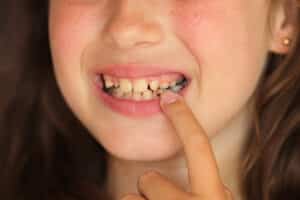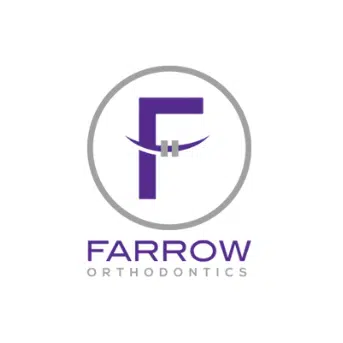Early orthodontic evaluation is a vital aspect of your child’s oral health journey. It involves assessing your child’s teeth and jaw structure with an orthodontist at an early age, typically around 7 years old. But why is this important?
Childhood is a critical period for oral health development. During these formative years, your child’s teeth and jaw are growing and changing rapidly. Ensuring that these changes occur correctly is essential for their overall well-being. Healthy teeth and a well-aligned bite contribute to a beautiful smile and affect speech, nutrition, and self-esteem. Therefore, paying attention to your child’s dental health and getting early orthodontic treatment Philadelphia and other areas at a young age is crucial.
The Window of Opportunity
Timing Matters

The timing of an early orthodontic evaluation is critical to ensuring the best outcomes for your child’s dental health. As mentioned earlier, this evaluation typically takes place around the age of 7. Why this age, you may wonder? It’s because, during childhood, your child’s teeth and jaw structures are in a state of rapid development.
- Dental Development in Children: Around the age of 7, most children have a mix of primary (baby) teeth and permanent teeth. This transitional phase provides orthodontists with a valuable opportunity to assess how these teeth are coming in and how they interact.
- Age for Initial Evaluation: This age is also when certain dental problems become more apparent. Orthodontists can detect issues like crowded teeth, overbites, underbites, or crossbites at an early stage, making it easier to address them effectively.
Missed Opportunities
Delaying orthodontic evaluation can have consequences, and these consequences can be far-reaching. The longer you wait, the harder it may become to treat certain issues. Here are some reasons why missing this early evaluation window can be problematic:
- Consequences of Delayed Evaluation: Dental problems that go untreated during childhood can worsen over time. For example, a minor crowding issue might develop into a more severe malocclusion, necessitating more extensive and invasive treatment.
- Difficulty of Treatment in Late Teens: As your child grows into their late teens, their jawbones become more rigid, and their facial growth patterns are mostly set. This means that certain orthodontic issues can be more challenging to correct in older age, potentially requiring more complex treatments like surgery.
Early orthodontic evaluation provides a valuable opportunity to catch and address issues while they are still manageable, potentially saving your child from more extensive and invasive treatments later in life.
Benefits of Early Orthodontic Evaluation
Identifying Potential Issues
One of the primary advantages of early orthodontic evaluation is the ability to identify potential issues in their infancy. These evaluations serve as a proactive approach to your child’s dental health, allowing orthodontists to spot problems before they escalate. Here are some common issues that early evaluation can detect:
- Malocclusions: Malocclusions refer to misalignments of the teeth or incorrect relationships between the upper and lower jaws. Early evaluation can reveal issues like overbites, underbites, crossbites, and open bites. Identifying these problems early enables orthodontists to intervene when the child’s dental development is still underway, making treatment more straightforward.
- Jaw Growth Problems: Some children may experience issues with the growth and development of their jaws. These problems can lead to bite irregularities and facial asymmetry. Early orthodontic evaluation allows orthodontists to monitor jaw growth and intervene if necessary, ensuring that the jaw develops correctly.
Customized Treatment Plans
Early orthodontic evaluation doesn’t just identify issues; it also lays the foundation for customized treatment plans tailored to your child’s specific needs.
- Tailored Approach for Each Child: Every child is unique, and their dental issues are no exception. Early evaluations allow orthodontists to create personalized treatment plans that address the specific concerns of each child. This tailored approach ensures that the treatment is as effective and efficient as possible.
- Personalized Treatment Goals: Early evaluations help set clear treatment goals. Orthodontists can determine the ideal timing for interventions, such as braces or other orthodontic appliances, to achieve the best results. These goals may include achieving a well-aligned bite, improving aesthetics, and optimizing oral function.
Preventing Complications
Early intervention not only addresses current issues but also helps prevent potential complications down the road.
- Avoiding Extractions: In some cases, early orthodontic treatment can create space for crowded teeth, eliminating the need for tooth extractions later on. This not only simplifies treatment but also preserves your child’s natural teeth.
- Reducing Treatment Time: Addressing orthodontic issues early can often lead to shorter treatment durations. When problems are corrected during the growth phase, treatment tends to be more efficient and less time-consuming.
Improved Oral Health
Correcting Habits
Early orthodontic evaluation plays a significant role in helping children break harmful oral habits that can impact their dental health.
- Thumb Sucking and Pacifier Use: Many children develop habits like thumb sucking or pacifier use during their early years. These habits can exert pressure on developing teeth and affect their alignment. Orthodontists can provide guidance and interventions to help children break these habits before they lead to lasting dental issues.
- Tongue Thrusting: Tongue thrusting, a habit where the tongue pushes against the front teeth during swallowing, can contribute to open bites and other malocclusions. Early evaluation allows orthodontists to identify and address tongue thrusting, preventing further complications.
Easier Oral Hygiene
A well-aligned smile not only looks good but is also easier to maintain. Early orthodontic evaluation contributes to better oral hygiene in several ways:
- Reducing the Risk of Decay and Gum Disease: Misaligned or crowded teeth can create tight spaces that are challenging to clean effectively. This can lead to a higher risk of tooth decay and gum disease. Early orthodontic treatment can correct these issues, making it easier for your child to brush and floss properly.
- Promoting Healthy Bite Alignment: A well-aligned bite ensures that teeth come together correctly when chewing. This reduces the risk of uneven wear and tear on the teeth, which can lead to premature tooth loss and other oral health problems.
By addressing habits and promoting good oral hygiene practices early on, orthodontists contribute to not only a beautiful smile but also long-term dental health.
Psychological and Social Benefits
A. Boosting Self-Esteem
Early orthodontic evaluation doesn’t just have physical benefits; it can also significantly impact your child’s self-esteem.
- Improved Appearance: When orthodontic issues are corrected early, children can enjoy a more aesthetically pleasing smile. This improved appearance can boost their confidence and self-esteem, making them feel better about their appearance.
- Enhanced Confidence: A straight and healthy smile can help children feel more confident in social situations. They may be more willing to smile, speak, and engage with others, leading to improved self-assurance.
B. Avoiding Bullying and Teasing
Dental issues in childhood can sometimes lead to teasing or bullying by peers. Early orthodontic evaluation and treatment can help children avoid these negative experiences.
- Impact of Dental Issues on Peer Interactions: Children can be quite perceptive, and they may notice when a peer has dental issues like crooked teeth or an overbite. Unfortunately, some children may use these differences as a basis for teasing or bullying.
- Long-term Psychological Effects: Teasing and bullying can have lasting psychological effects on children, impacting their self-esteem and mental well-being. By addressing dental issues early, parents can help prevent their children from experiencing these negative consequences.
Financial Considerations
Cost Savings
Some parents may be concerned about the cost of early orthodontic evaluation and treatment, but it’s important to consider the long-term financial benefits.
- Early Intervention vs. Extensive Treatments: Addressing orthodontic issues early can often prevent the need for more extensive and costly treatments in the future. By catching and correcting problems during childhood, you can potentially avoid the expenses associated with complex orthodontic procedures or oral surgeries.
- Insurance Coverage: Many dental insurance plans cover orthodontic evaluations and treatments for children. Checking your insurance coverage and taking advantage of it can help mitigate the financial burden.
Payment Options
Orthodontists understand the importance of early intervention and strive to make it accessible for families.
- Orthodontic Financing Plans: Many orthodontic practices offer flexible financing options that allow you to spread the cost of treatment over time. These plans can make early orthodontic evaluation and treatment more manageable for your family budget.
- Affordable Access to Care: Early orthodontic evaluation is an investment in your child’s future oral health. Many orthodontists offer affordable initial evaluations or consultations to make it easy for parents to seek professional advice without a significant financial commitment.
Secure Your Child’s Bright Smile Today!
Farrow Orthodontics is your partner in ensuring your child’s dental health in Philadelphia. Our top-rated orthodontist, Dr. Anthony Farrow, specializes in early orthodontic treatment for children.
Why Choose Farrow Orthodontics for Your Child?
- Early Treatment: Act now to optimize your child’s dental development. Early intervention sets the stage for a healthy, confident smile.
- Tailored Care: Dr. Farrow provides personalized solutions for children of all ages, ensuring the best results.
- Invisalign for Teens: We offer discreet Invisalign options designed for teens, making orthodontic treatment easy.
- Cutting-Edge Spark Clear Aligners: Our clear aligners are ideal for younger patients, providing effective treatment with minimal visibility.
Invest in your child’s smile today. Schedule an appointment with Farrow Orthodontics to start their journey towards a lifetime of confident, healthy teeth.



